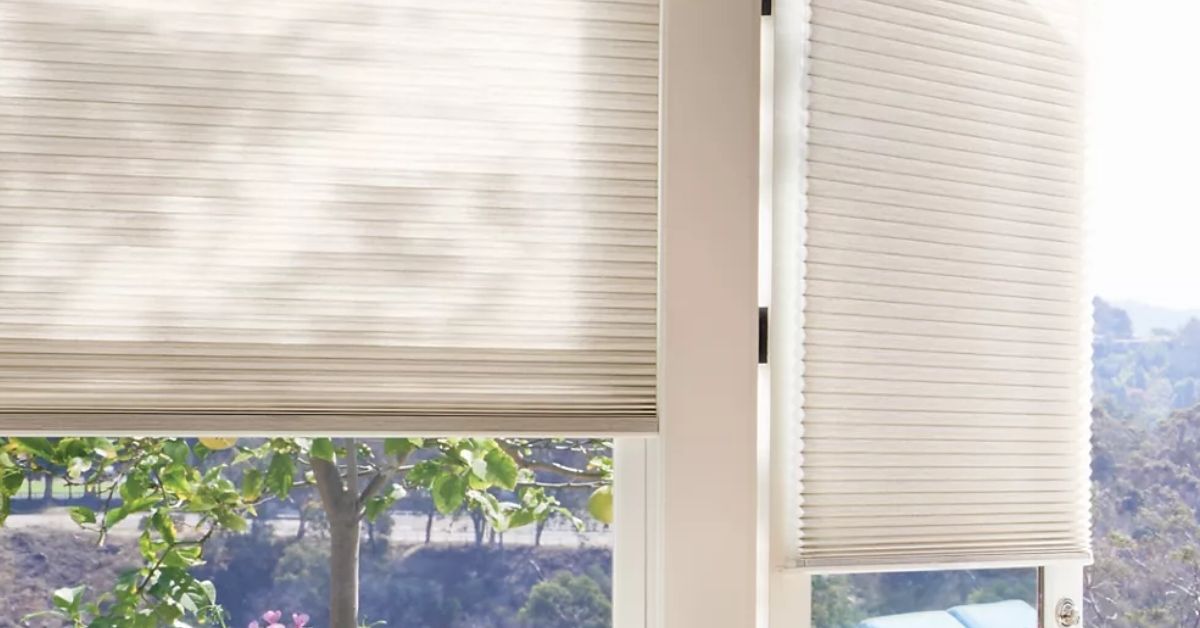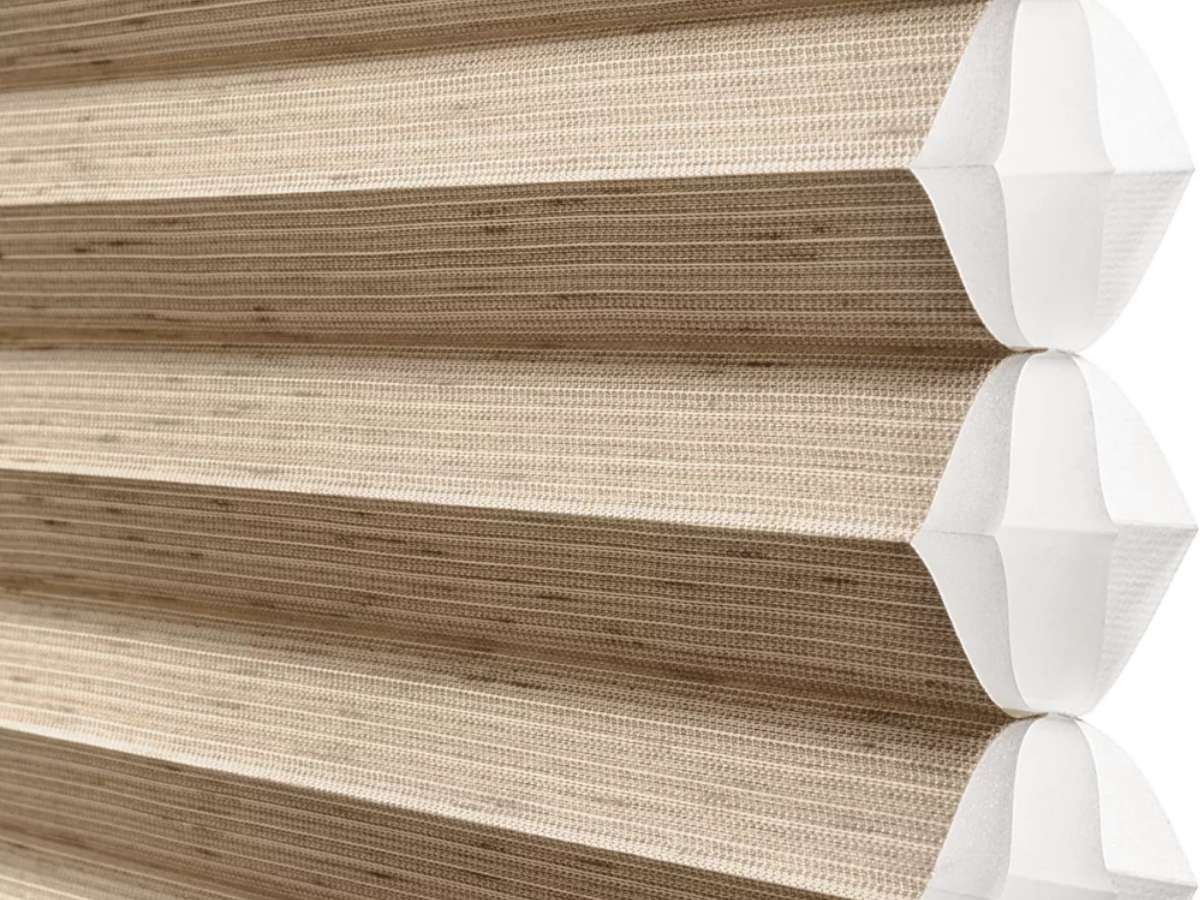Comparing Single Cell and Double Cell Cellular Shades
by Amy Meinecke
11 30, 2024 | Posted in shades, Window Treatments | 0 comments

Cellular shades, also known as honeycomb shades, are a popular choice for homeowners seeking stylish and functional window treatments. When deciding between single cell and double cell cellular shades, it helps to understand their differences, benefits, and how they suit various needs. This guide will break down the key aspects of these shade types, helping you make an informed decision.
What Are Cellular Shades?
 Cellular shades are window coverings designed with unique, honeycomb-shaped pockets that trap air. This structure provides excellent insulation, helping regulate indoor temperatures while enhancing energy efficiency. Available in a variety of styles and features, cellular shades offer solutions for light control, privacy, and home decor.
Cellular shades are window coverings designed with unique, honeycomb-shaped pockets that trap air. This structure provides excellent insulation, helping regulate indoor temperatures while enhancing energy efficiency. Available in a variety of styles and features, cellular shades offer solutions for light control, privacy, and home decor.
Single Cell vs. Double Cell Cellular Shades
Structure and Design
- Single Cell Shades: These shades feature one layer of honeycomb cells. The structure is simple and lightweight, making them an excellent option for smaller windows or spaces requiring minimal insulation.
- Double Cell Shades: With two layers of honeycomb cells stacked together, double cell shades provide enhanced insulation. They’re ideal for larger windows or rooms where maximum energy efficiency is desired.
Appearance
Single and double cell shades differ slightly in thickness. Single cell shades have a sleeker profile, while double cell shades are thicker, offering a more robust look.
Energy Efficiency and Insulation
- Single Cell Shades: Provide moderate insulation by trapping air in their single layer of cells. They work well in temperate climates or areas with mild weather changes.
- Double Cell Shades: Excel in insulation, reducing energy loss significantly in both hot and cold climates. They’re a top choice for homeowners seeking to lower utility bills.
Benefits of Cellular Shades
Energy Efficiency
Both single and double cell shades improve energy efficiency, but double cell shades offer superior performance. The additional layer of cells provides better temperature regulation, keeping your home comfortable year-round.
Light Control and Privacy
- Light Filtering: Available in both single and double cell options, light-filtering shades gently diffuse natural light, creating a soft, inviting ambiance.
- Room Darkening: Ideal for bedrooms or media rooms, room-darkening shades block out more light, enhancing privacy and creating a restful environment.
Sheer to Blackout Options: Cellular shades cater to diverse needs, from sheer styles that let in ample light to blackout shades that ensure complete privacy.
Style and Versatility
Cellular shades come in a range of colors and textures, suiting various home decor styles. Whether you prefer minimalistic designs or bold statements, these shades adapt to your aesthetic preferences.
Customization and Features
- Cordless Shades: Safer for homes with children or pets, cordless cellular shades offer a clean, modern look.
Motorized and Smart Shades: Enhance convenience by operating your shades with a remote or smartphone, integrating seamlessly with smart home systems.
Choosing the Right Cellular Shade for Your Home
Consider Your Climate
- In warmer regions, single cell shades provide adequate insulation while maintaining a lightweight design.
- In colder climates, double cell shades deliver superior thermal protection, keeping your home cozy during winter months.
Window Size
- Single Cell Shades: Best for smaller windows where a slimmer profile is preferable.
- Double Cell Shades: Suitable for large windows, as they provide additional insulation and light control.
Budget
- Single cell shades are often more budget-friendly, making them a practical choice for multiple rooms or projects.
- Double cell shades offer a greater return on investment through energy savings over time.
Light Control Needs
Determine if you need light filtering, room darkening, or blackout options based on the room’s purpose and your personal preferences.
Frequently Asked Questions about Cellular Shades
1. How durable are cellular shades over time?
Cellular shades are highly durable when made from quality materials. Their design resists sagging and fading, ensuring long-lasting performance. Regular maintenance, such as dusting or vacuuming, helps preserve their appearance and functionality.
2. Can cellular shades reduce outside noise?
Yes, especially double cell shades. Their thicker construction absorbs sound, making them an excellent choice for homes near busy streets or noisy neighbors.
3. Are cellular shades environmentally friendly?
Yes. Cellular shades contribute to energy efficiency by reducing heating and cooling needs, which lowers your home’s carbon footprint. Many manufacturers also use recyclable or eco-friendly materials in their production.
Right Cellular Shades for You
Cellular shades are a versatile and efficient window treatment option that can enhance any room. By understanding the differences between single and double cell shades, you can select the best style to meet your insulation, light control, and aesthetic needs.
At Window Works Studio in Jamestown, NC, we offer a wide selection of custom cellular shades to suit your home’s unique requirements. Contact us today to schedule a consultation and discover how cellular shades can transform your space!
Founder of the High Point Chapter of the WCAA. I was a Registered Nurse with a combined experience of 16 years, before obtaining a degree in clothing and textiles. I enjoy working with people and creating beautiful things that enhances my clients’ lives.


